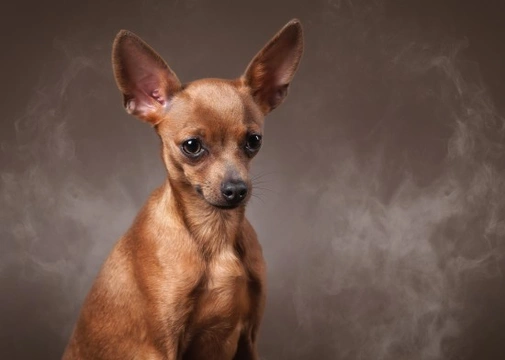
Nicotine poisoning in pets
All pet owners are aware that a range of common household substances and hazards can prove toxic to pets, even if they are not dangerous to humans. One of those substances is nicotine, which is of course found in cigarettes, cigars, tobacco, and a wide range of pharmaceutical aids to stop smoking. Even if you do not smoke and smoking is banned in your household, there is still a very real possibility that pets such as cats and dogs may come into contact with products containing nicotine outside of the house. Discarded cigarette butts and nicotine gum can be found by pets when out on walks or playing in the neighbourhood, or if you take your dog to outside areas such as pub beer gardens where smoking is permitted.
So, how great is the risk of nicotine poisoning in pets, and what can you do about it? Read on to learn more.
What products contain nicotine?
Nicotine can be found in varying quantities in a wide variety of products related to smoking, some of which you might not be aware of, including:
- Cigarettes
- Cigars
- Pipes and pipe tobacco
- Hand rolling tobacco
- E-cigarettes and e-cigarette liquids and cartridges
- Nicotine patches
- Nicotine gum
- Nicotine mouth sprays
- Nicotine lozenges
How likely are pets to ingest nicotine willingly?
Fortunately, dogs and cats are unlikely to be overly keen to eat a cigarette or anything else containing actual tobacco, as tobacco is bitter tasting and highly unpalatable to pets. However, many stop-smoking aids such as those listed above are sweetened and flavoured, giving them a potential appeal to your pets. Even if they do not mean to eat tobacco or ingest nicotine willingly, many dogs are quick to scavenge and pick things up from the floor, often eating first and tasting later, so there is the risk of nicotine ingestion by this means. Similarly, while a cat is unlikely to go out of their way to eat a tobacco product, a cylindrical cigarette rolling around or a discarded butt can soon catch the eye, and to your cat, make a possible toy, raising the risk.
How much nicotine poses a problem?
Obviously, no nicotine at all is the only way to be safe, but if you find or suspect that your pet has ingested something that contains nicotine, you should be able to assess the risk involved. Nicotine toxicity occurs in pets with a dose of around .5 to 1mg of nicotine per lb of bodyweight, and a fatal dose is considered to be 4mg of nicotine per lb of bodyweight.
The nicotine content of any product sold in the UK, including stop smoking aids such as e-cigarettes and nicotine gum must be displayed on the packaging, enabling you to work out how many mg of nicotine any product contains.
The nicotine content of the average cigarette varies between around 8mg and 30mg, and this figure will be higher for cigars. Nicotine gum usually contains between 2mg and 5mg per piece, while a small bottle of e-cigarette nicotine liquid can contain anything from 6mg to 34mg of nicotine.
Ingesting nicotine by eating it is much more problematic than inhaling smoke from nicotine, and the levels inhaled by smokers are much lower than the figures mentioned above. While passive smoking affects pets just as it does people, and can lead to a range of health complications of its own, passively inhaling nicotine is not immediately toxic to pets.
The symptoms of nicotine poisoning in pets
Nicotine poisoning is relatively quick in onset, and will usually show symptoms as soon as one hour after nicotine consumption. The stomach does not absorb nicotine as you might expect it to, but the small intestine absorbs nicotine in its place. When absorption begins, nicotine stimulates the vomiting reflex, often causing the pet to throw up any remaining nicotine in the stomach and so, reduce the amount available in the body to do damage.
Symptoms of nicotine poisoning in pets include:
- Hallucinations
- Constricted pupils
- Over excitability and hysteria
- Body tremors or spasms, which may progress into seizures
- Drooling or slobbering
- Sickness, vomiting and diarrhoea
- A galloping heartbeat or racing pulse
- High blood pressure with lower doses
There may be evidence of tobacco within the vomit in the case of actual tobacco ingestion; this can help to definitively identify nicotine poisoning. However, nicotine poisoning should not be ruled out if no tobacco is found, as the pet may have consumed one of the tobacco-free stop smoking products that contain nicotine rather than actual tobacco.
Treating nicotine poisoning
Take your pet to the vet as a matter of urgency, as fast treatment is required in cases of nicotine poisoning. If you know what nicotine-containing product your pet has consumed, take this along too, or at least the packaging, to allow your vet to calculate roughly how much nicotine your pet has ingested.
Your vet may induce vomiting or wash out the stomach to remove any remaining nicotine, and from this stage on it is largely a waiting game, which may involve medicating for seizures, sedating the pet, and careful monitoring. Generally, if the pet survives for the first four to six hours after ingestion, they are likely to make a full recovery. Nicotine is metabolised in the liver and passed out of the body through urination, and within 24 hours, any nicotine within the system should have passed through the body naturally.
Minimise the risks of nicotine poisoning by keeping any smoking products, including stop smoking aids, well out of the reach of your pet, and do not smoke around your pets, in order to preserve both their short term and long-term health.



